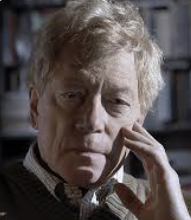
Roger Scruton — The Philosopher of Conservatism, Beauty, and Belonging (1944–2020)
Roger Scruton was the most articulate conservative philosopher of the late twentieth century — a thinker who defended tradition, beauty, and inherited ways of life not from nostalgia or reaction, but from a deep concern for meaning, continuity, and moral ecology. In an age obsessed with disruption, Scruton argued for stewardship: the careful preservation of what human beings have learned to love.
Conversion in the Streets of Paris
Born in England and educated at Cambridge, Scruton did not begin life as a conservative. His political awakening came in 1968, when he witnessed the student riots in Paris. What others saw as liberation, Scruton saw as nihilism — the thrill of destruction masquerading as moral progress.
That moment crystallized his lifelong opposition to revolutionary politics. He concluded that political wisdom lies not in tearing down institutions, but in understanding why they exist and what fragile human goods they protect.
“Conservatism is about conserving things that are worth conserving.”
Conservatism as Moral Ecology
Scruton rejected the caricature of conservatism as mere resistance to change. Instead, he framed it as a form of moral ecology — a recognition that social practices, traditions, and institutions are delicate achievements, evolved over time to meet deep human needs.
Just as natural ecosystems can be destroyed by reckless intervention, moral ecosystems can be damaged by ideological certainty. Customs, laws, and social norms embody knowledge we did not design, but ignore at our peril.
“Traditions are not the dead hand of the past, but the living voice of the dead.”
Beauty — A Moral Necessity
One of Scruton’s most distinctive contributions was his defense of beauty. In architecture, music, art, and everyday life, he argued that beauty is not subjective decoration, but a fundamental human need.
Beauty invites reverence, restraint, and love of place. Its erosion — through brutalist architecture, utilitarian design, or cultural cynicism — produces not liberation, but alienation.
To care for beauty is to care for the shared world.
“Beauty is a call to renounce our narcissism and look outward.”
Home, Nation, and Belonging
Scruton believed that human beings need places of belonging. Concepts like home, nation, and community are not irrational attachments, but moral frameworks through which responsibility becomes possible.
Love of country, in his view, was not aggressive nationalism, but gratitude toward a shared inheritance. Political loyalty arises not from abstract ideals, but from lived attachment to places, people, and customs.
A politics that denies belonging, he warned, produces resentment and rootlessness.
“We need boundaries to make freedom real.”
Courage Behind the Iron Curtain
Scruton’s conservatism was not merely theoretical. During the Cold War, he secretly aided dissident intellectuals in communist Eastern Europe, smuggling books, organizing underground seminars, and helping preserve independent thought.
He was arrested, expelled, and blacklisted — yet continued his efforts quietly. These actions revealed a core truth: his defense of tradition was inseparable from a commitment to intellectual freedom.
Controversy, Exile, and Rehabilitation
Scruton’s refusal to conform made him a frequent target. He was marginalized in academia, caricatured in the press, and periodically ostracized for his views.
Late in life, he was publicly condemned and then exonerated after a misrepresented interview — a final lesson, perhaps, in the costs of dissent in a moralized media culture.
Legacy — The Philosopher of Love and Limits
Roger Scruton leaves behind not a rigid doctrine, but an orientation: gratitude over resentment, care over disruption, love over abstraction.
He taught that freedom survives only when joined to responsibility, and that civilization depends not on endless critique, but on patient repair.
In defending limits, Scruton defended the fragile spaces where human meaning can still take root.
“The task of philosophy is not to destroy, but to understand what we love.”
CivilSimian.com created by AxiomaticPanic, CivilSimian, Kalokagathia
